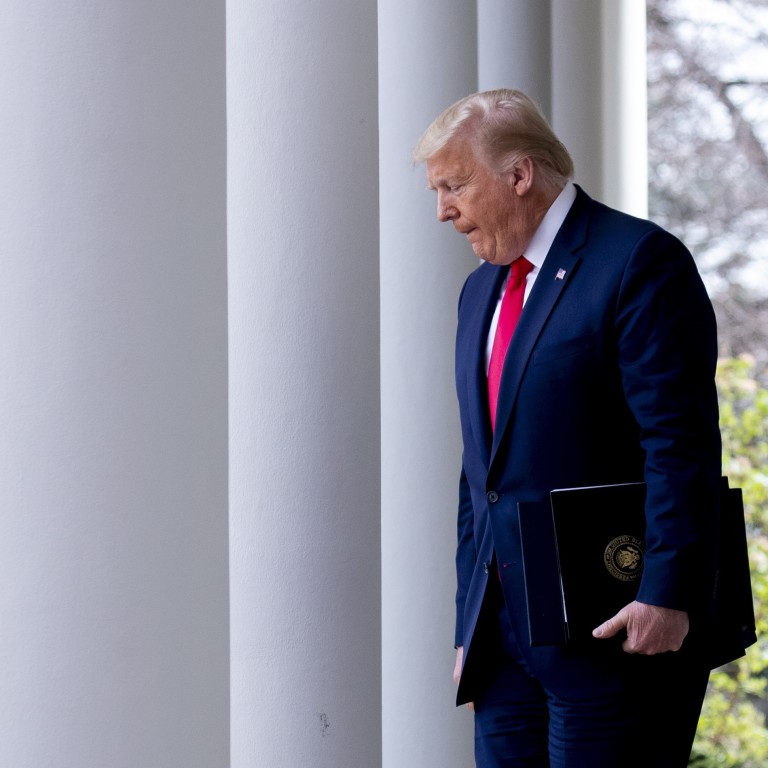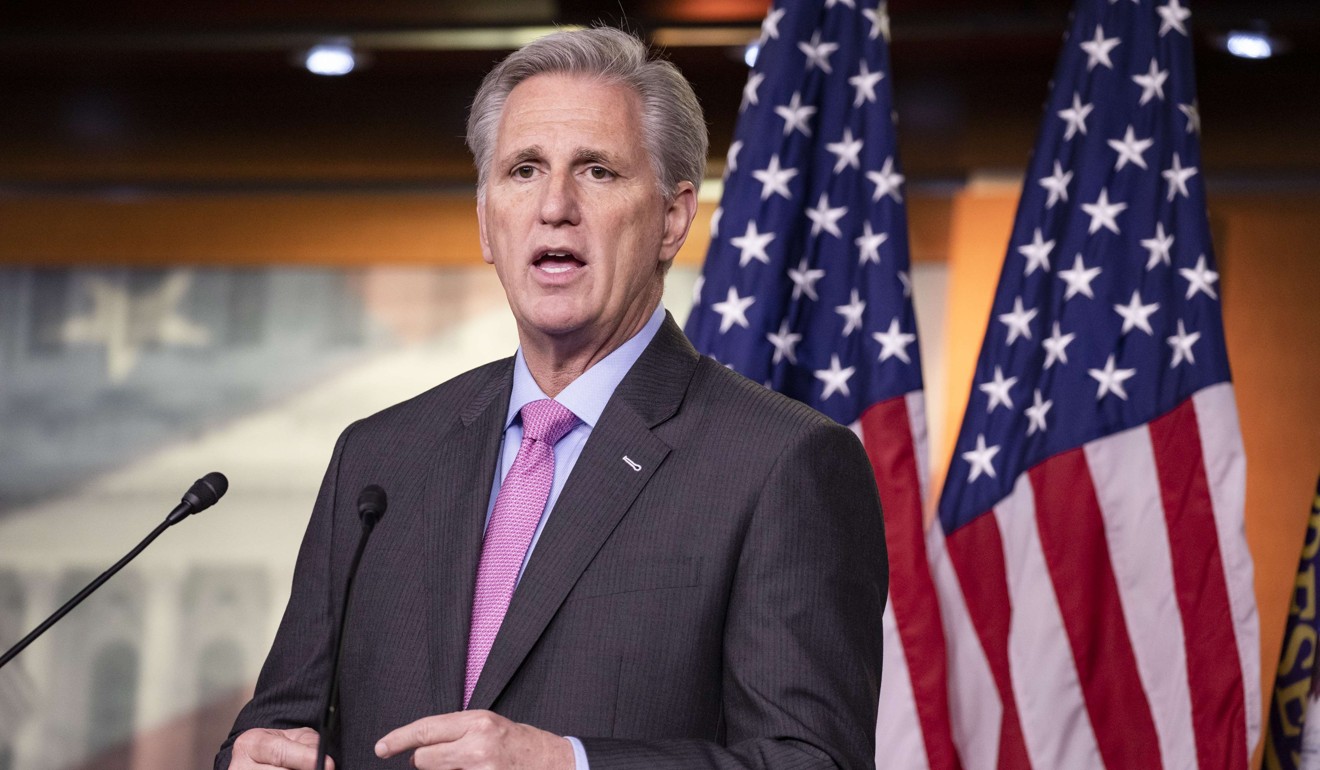
Donald Trump refers to ‘Chinese virus’ as Washington asks Beijing to stop shifting blame for Covid-19 to the US
- Mike Pompeo tells top Chinese diplomat ‘this is not the time for disinformation’ after officials spread conspiracy theory that US troops took virus to China
- Yang Jiechi had called the US secretary of state to denounce American lawmakers’ comments about China’s handling of the outbreak
United States President Donald Trump described Covid-19 as a “Chinese virus” in remarks likely to trigger another backlash from China after top diplomats from the two nations clashed over the coronavirus outbreak.
In a series of tweets, Trump asked US people to “band together and support your neighbours by not hoarding unnecessary amounts of food and essentials”.
“Together we will stay strong and overcome this challenge!” he wrote.
“The United States will be powerfully supporting those industries, like airlines and others, that are particularly affected by the Chinese virus. We will be stronger than ever before!”
Trump’s tweet came after US Secretary of State Mike Pompeo clashed with his Chinese counterpart on Monday over what he called Beijing’s efforts “to shift blame for Covid-19 to the United States” as escalating accusations – and even allegations of conspiracy – flew between Beijing and Washington.
Amid the spreading of a conspiracy theory by Chinese officials that US troops could have introduced the novel coronavirus to China, Pompeo told Yang Jiechi in a phone call that “this is not the time to spread disinformation and outlandish rumours, but rather a time for all nations to come together to fight this common threat”, according to the State Department.
During the call, Yang, Beijing’s top diplomat, denounced US lawmakers’ criticism of China’s disease control efforts, according to Chinese state media reports. The politicians’ remarks had “continuously denigrated” China’s measures and “aroused the strong indignation of the Chinese people”, he said.
Yang said that US attempts to discredit China “would not succeed” and that China would counter any actions that affected its interests. He also urged Pompeo to strengthen cooperation with China and the international community for the sake of global public health and security.
Top US politicians have drawn the ire of the Beijing foreign ministry for emphasising the global epidemic’s Chinese roots.
That anger has not stopped US President Donald Trump from referencing the contagion’s origin.
Asked in a White House briefing on Monday about US government support for airlines as travel restrictions cut into their earnings, Trump said: “We’re going to back to the airlines 100 per cent. It’s not their fault, it’s nobody’s fault, unless you go to the original source, but it’s nobody’s fault.”
Trump advises against social gatherings of more than 10 people
Last week the minority leader of the US House, Representative Kevin McCarthy, referred to the disease as the “Chinese coronavirus”, while Pompeo himself this month called it the “Wuhan coronavirus”. The foreign ministry denounced both instances as stigmatising China.
Since then, foreign ministry spokesman Zhao Lijian has referenced a conspiracy theory that the Covid-19 pandemic may have been linked to the US Army’s participation in the international Military World Games held in Wuhan in October.
Zhao’s suggestion, made on Friday on Twitter on Friday, caused the US State Department to summon the Chinese ambassador to Washington, Cui Tiankai, in angry protest.

After the spat, China’s ambassadors to Kazakhstan and Nigeria fell in line behind Zhao, echoing his criticism of the US.
Zhang Xiao, the ambassador to Kazakhstan, took aim at the US in a Facebook post on Saturday.
“Your shortages of masks, gloves, tests, and equipment, and even your stock market plunging, was it all caused by China? It’s time to admit what you’ve been hiding from your voters and the international community, because there are many doubts,” Zhang said in a post written in Russian.
US summons Ambassador Cui Tiankai amid anger over Beijing’s virus comments
China’s ambassador to Nigeria, Zhou Pingjian, blamed “certain US politicians” and the US media with “ulterior motives” for spreading prejudice. “Why are certain people and media still promoting such absurd logic? What are they up to?” he asked.
Earlier this month, US-based Fox News commentator Jesse Watters joked during the broadcast of the political panel discussion The Five that he wanted an apology from President Xi Jinping or the Chinese embassy.
At a foreign ministry press conference days later, Zhao Lijian issued a lengthy rebuke of the comments, saying that the origins of the virus were still undetermined.
“The H1N1 flu that broke out in the US in 2009 spread to 214 countries and regions, killing at least 18,449 people that year alone. I don't remember anyone asking the US to apologise,” Zhao said.
Ambassador Zhou’s article over the weekend echoed Zhao’s points on H1N1, and the absence of an apology.
“To defeat this virus is everyone’s battle and every patient that came down with it [sic] wherever he or she is, is a victim. What is the point in arguing that someone should apologise for [the disease]?” he said.
Additional reporting by Owen Churchill
Purchase the China AI Report 2020 brought to you by SCMP Research and enjoy a 20% discount (original price US$400). This 60-page all new intelligence report gives you first-hand insights and analysis into the latest industry developments and intelligence about China AI. Get exclusive access to our webinars for continuous learning, and interact with China AI executives in live Q&A. Offer valid until 31 March 2020.

